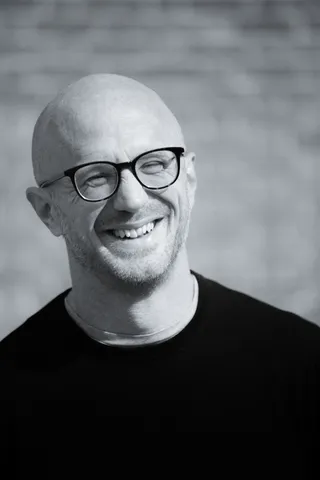The Beauty Contest

This post was originally an email sent to the Better Questions Email List.
For more like it, please sign up – it’s free.
Since we’ve all had enough of being cooped up inside and self-quarantining…
Let’s imagine a simpler time.
You’re walking down an ocean boardwalk.
You can feel the sun on your neck, warming you all the way through.
The smells of salt air, cotton candy, roasting peanuts linger in the air.
The sounds of summer wash over you:
The gentle murmur of ocean waves…
The joyous cries of children playing…
The mechanical music of various sidewalk rides and games…
The calls of seagulls floating overhead.
You work your way through the crowds. You’re not headed anywhere in particular, just enjoying the scene.
As you walk you come across a large crowd gathered around an elevated stage. You stop to see what’s going on.
Three men stand on the stage next to each other. A carnival barker shouts through a megaphone:
“Ladies and gentlemen! This is your chance to be handsomely rewarded! Great prizes in store for those who are the best judge of beauty! How finely tuned is your romantic apparatus? Now is the time to find out!”
The barker gestures to the men, who smile and wave.

“Each one of you gets a vote – which of these dashing young men is the handsomest?
Which of these rugged exemplars of American manhood is the most appealing?
Vote, and if your choice gets the most votes, a fabulous prize will be yours!”
Someone hands out slips of paper to the crowd; you’ve got a few moments to decide on your vote. You’ve got admit…you like the sound of “fabulous prizes.” It’d be nice to win.
So…
Who do you vote for?
Let’s leave aside the obvious fact that it would be impossible to choose. Putting anyone in such a hopeless scenario would be cruel.
Underlying this situation is one of the most powerful mental models I’ve ever come across.
It’s an idea that – once you get it – changes how you view the world around you.
Rather than telling you, though…let’s see if we can reason it out. 🙂
How do we decide who to vote for?
The simplest answer is, “Vote for whomever you like the most.”
Are you attracted to the cool, mysterious vibe of contestant 1?
Vote for contestant 1.
Maybe you’re a huge pie fan, and so you’re drawn to the caring and lovable vibe of contestant 2.
Vote for contestant 2.
Or maybe it’s the raw, animal sexuality of the muscular 3 that draws you in.
Vote for contestant 3.
This is first-order decision making. Just vote for your preference!
But is this best way to vote, if our goal is to win the prize?
Probably not.
If we want to win, we need to make sure that we vote for the winning contestant.
That means we need to think not just about who we like, but how other people will vote.
How do you think other people will vote, on average?
We might say:
“Well, I prefer 1, because I like babies. But I think most people are attracted to hyper-masculine muscle-men, so most people will vote for 3…therefore I’ll vote for 3.”
Or we might think:
“While I prefer 3, I think that much raw machismo will simply be too over-stimulating for most. They’ll be so simultaneously titillated and intimidated that they will, in a kind of sexual panic, vote for the more soothing and comforting presence of 2.”
We’re now making decisions based on how we believe other people will vote.
This is second-order decision making:
Making decisions based on how we believe other people will vote.
Let me draw your attention to two important points here:
1. Second-order decision making requires us to have an opinion about what other people think.
We’re making guesses about what’s in other people’s heads. Hard to do.
2. Second-order decision making assumes that everyone else is making first-order decisions.
“They’re voting based on their preferences, while I’m voting based on what I think their preferences are.“
But is this the best way to vote, if we want to win the prize?
Probably not.
Think about this:
Do you believe you are the only person to come up with second order thinking?
Do you believe you’re the only one smart enough to realize you shouldn’t vote based on your preferences, but on what you believe about other people’s preferences?
Probably not.
If you’ve discovered second order decision making, it’s probable that other people have as well.
And if they’ve discovered second order decision making, that means they’re not deciding based on their preferences, but rather on what they believe the preferences of other people will be.
This brings us to third-order decision making:
Making decisions based on what we believe other people believe about what other people think.
So, it’s not:
“Who do I think is most attractive?”
And it’s not:
“Who do I think most people find most attractive?”
It’s:
“Who do most people think most people think is most attractive?”
There’s no reason to stop there, either.
We could keep going to fourth and fifth-degree decision making if we wanted.
This idea is nicely summarized in this scene from The Princess Bride:
It’s this kind of thinking…
But spread out among a large group of people.
In game theory, this is called the Common Knowledge Game.
How do we decide best, when the best decision depends on how other people decide…
And everyone is making second or third order decisions?
How do we think about what other people think about what other people think?
Do I put the Iocaine powder in my glass, or yours?
The Common Knowledge Game, once you start to look for it, is everywhere…
And it’s critical to thinking clearly about situations like a pandemic.
Better Questions Newsletter
Join the newsletter to receive the latest updates in your inbox.
